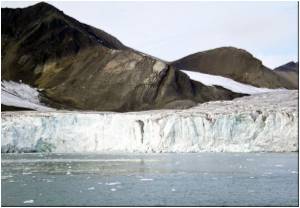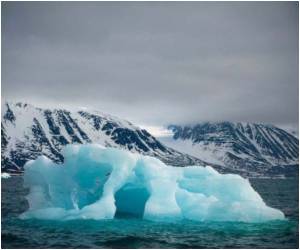
The researchers developed a climate model for the island group of the north of Canada in which they simulated the shrinking and growing of glaciers in this area.
The researchers show that the model correctly 'predicted' the ice mass loss measured over the last 10 years and then used the same model to project the effect of future climate change on Canada's Arctic Archipelago glaciers.
The most important result of the research is it shows the probable irreversibility of the melting process, according to lead author Dr Jan Lenaerts of Utrecht University.
"Even if we assume that global warming is not happening quite so fast, it is still highly likely that the ice is going to melt at an alarming rate. The chances of it growing back are very slim," Dr Jan Lenaerts said.
One of the main reasons for the irreversibility lies in the fact that snow melting on tundra, and sea ice loss from around the glaciers, actually reinforce regional warming, with significant consequences on the glaciers of Northern Canada.
Advertisement
Canada's Arctic Archipelago glaciers represent the third largest ice body in the world after Greenland and the Antarctic.
Advertisement
Since 2000 the temperature in this area has risen by 1 to 2 degrees Centigrade and the ice volume has already significantly decreased.
If a fifth of the Canadian ice caps have melted by the end of this century, this leads to an additional sea rise of 3.5cm.
"Most attention goes out to Greenland and Antarctica which is understandable because they are the two largest ice bodies in the world. However, with this research we want to show that the Canadian ice caps should be included in the calculations," Co-author Professor Michiel van den Broeke of Utrecht University said.
"The Canadian archipelago is an area where climate is changing rapidly, and the glaciers here contain enough ice that we should not ignore their contribution to sea-level rise. Added to glaciers in Alaska, the Russian Arctic and Patagonia, these apparently small contributions add up to significant sea-level rise. A key success of this study was in showing that the model performed well in reproducing recently observed changes. That success gives us confidence in how the model predicts future changes," Professor David Vaughan programme leader of ice2sea, who is based at the British Antarctic Survey in Cambridge, said.
Source-ANI








